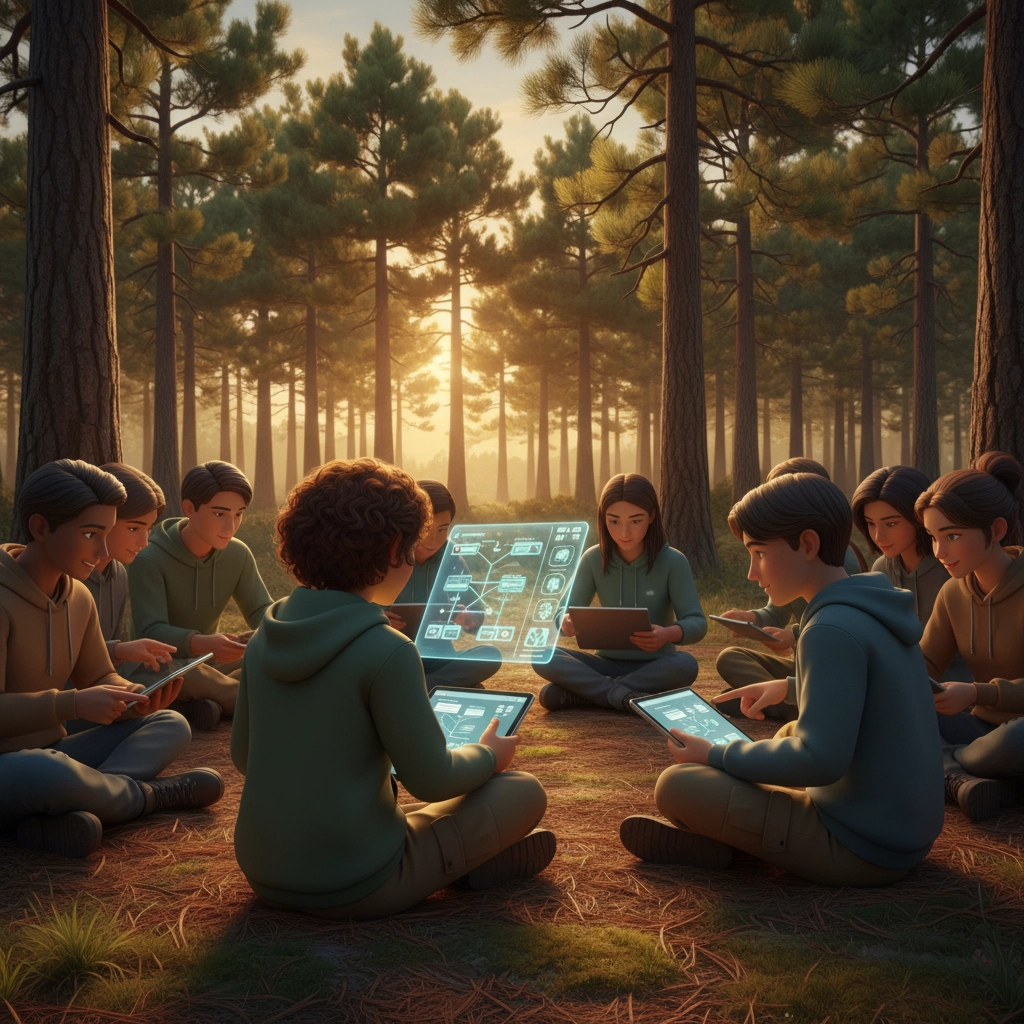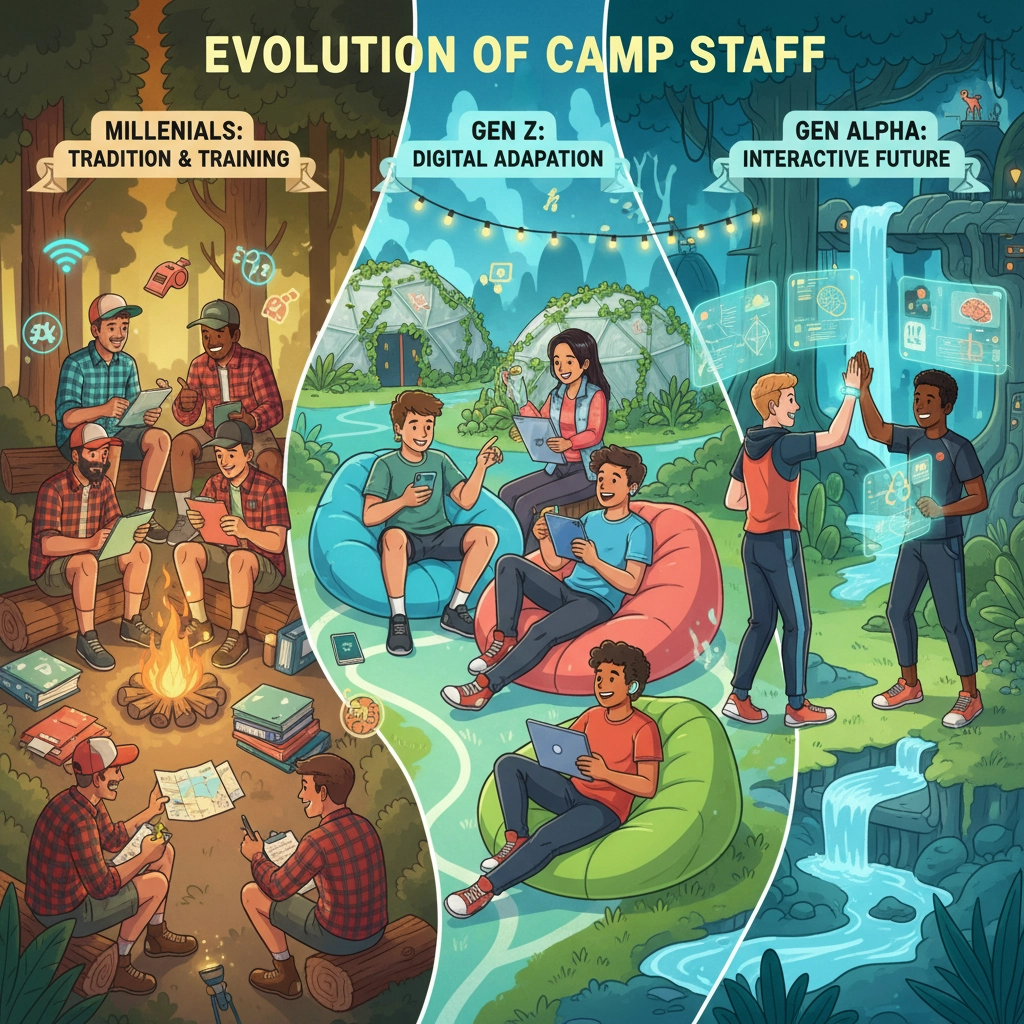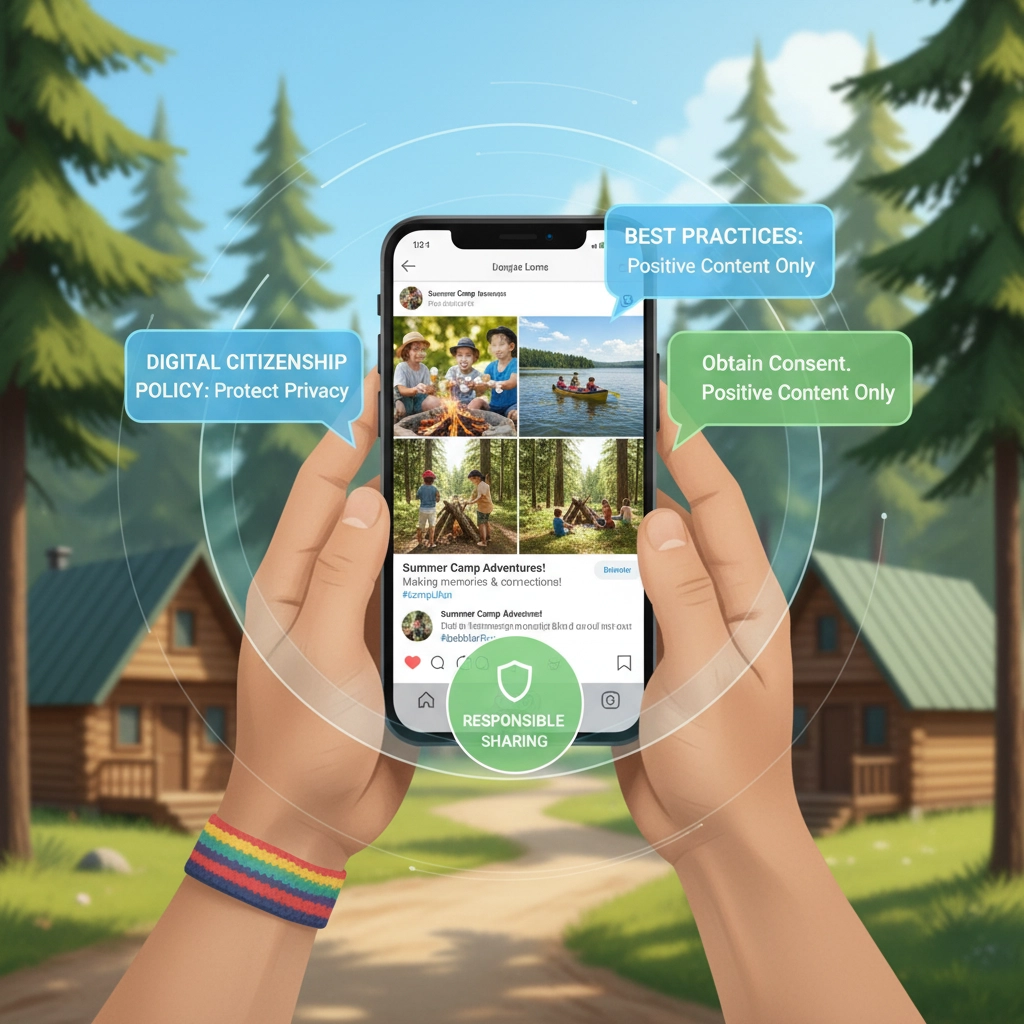The Summer Camp Daily Brief – October 8, 2025
- Matthew Kaufman

- Oct 10
- 4 min read
Hey camp family!
October's here, which means we're deep in that sweet spot of reflection and planning. While the summer feels like yesterday, this is when the real magic happens: when we take everything we learned and start building an even better experience for next year.
This week's been buzzing with conversations about three major shifts happening in our world. Let's dive into what's got camp directors and staff talking.
AI-Powered Staff Training Is Having Its Moment
Remember when we used to spend hours creating training modules from scratch? Those days are shifting fast. This week, a new wave of AI training platforms specifically designed for youth organizations launched, and the early reviews are pretty impressive.

The standout feature? These systems can analyze your specific camp culture, age groups, and common challenges, then create personalized training scenarios for each staff member. Think about it: instead of generic conflict resolution training, your counselors get scenarios that mirror the actual situations they'll face at your camp.
What's really catching attention is how these platforms handle the nuanced stuff we deal with daily. Homesickness scenarios that factor in your camp's specific age ranges. Behavioral interventions that align with your camp's philosophy. Even emergency protocol training that matches your actual facilities and geography.
But here's the thing everyone's discussing: the human element isn't going anywhere. These tools work best when they're enhancing, not replacing, the mentor relationships that make staff development truly stick. The camps seeing the biggest wins are using AI to handle the knowledge transfer parts, freeing up senior staff to focus on the coaching and relationship building that only humans can do.
One camp director in Vermont shared that their new staff satisfaction soared this summer after implementing AI-assisted onboarding last spring. The key? The system identified knowledge gaps early and provided targeted support before small issues became big problems.
If you're curious about exploring this, start small. Pick one training module: maybe first aid scenarios or age-appropriate activities: and test how AI-generated content compares to your current materials.
The Gen Alpha Staff Conversation Gets Real
We've been talking about Gen Z staff for years, but now we're seeing the first wave of Gen Alpha (born after 2010) entering our counselor-in-training programs. And honestly? The early observations are fascinating.

This generation grew up with AI assistants, learned through interactive apps, and expects real-time feedback in ways we're still figuring out. Traditional training methods that worked for millennials and even Gen Z are hitting different with these emerging staff members.
What's working? Micro-learning modules that mirror TikTok's format but with camp-specific content. Interactive simulations that feel more like the games they grew up playing. And surprisingly, they're craving in-person mentorship more than any recent generation: but they want it structured differently.
The conversation that's happening across camp networks right now centers on communication styles. Gen Alpha staff often prefer direct, immediate feedback over the sandwich method many of us learned. They want to know exactly what they did well and exactly what to adjust, right in the moment.
But here's what's really interesting: their problem-solving approaches are incredibly collaborative. They naturally turn challenges into group discussions and seek multiple perspectives before making decisions. For camp environments, this could be a game-changer.
The adaptation isn't just one-way, though. These emerging staff members are pushing all of us to communicate more clearly, provide feedback more regularly, and create systems that actually make sense instead of relying on "that's how we've always done it."
Social Media Policies
Social media is sparking some important discussions about boundaries, professionalism, and reality.
The biggest shift? Moving from restrictive "don't post anything camp-related" policies to more nuanced approaches that acknowledge social media as a normal part of life while still protecting everyone involved.
Here's what's changing: Instead of blanket restrictions, camps are developing policies that focus on specific behaviors and outcomes. Staff can share their camp experience, but within clear guidelines about privacy, professionalism, and appropriate content.
The new frameworks address some situations we've all navigated: What happens when a staff member's personal social media reflects poorly on the camp? How do we handle the reality that parents and campers might find and follow staff accounts? What about staff members who are content creators or use social media professionally?

One policy approach that's gaining traction involves creating "camp-appropriate" social media guidelines that staff can actually follow consistently. Things like waiting 24 hours before posting about challenging situations, focusing on positive camp experiences, and always considering whether a post reflects the values they'd want associated with their camp.
The conversation isn't just about rules, though. It's about helping staff understand the professional impact of their digital presence and giving them tools to represent themselves and their workplace well without sacrificing their personality or creativity.
What's your take on finding that balance? Are you updating your policies this off-season?
Want to keep up with these conversations? Follow @mattlovescamp on Instagram for daily insights, and join our community at www.ilove.camp where camp professionals are discussing these topics year-round.
What trends are you noticing in your corner of the camp world? The best insights always come from the field, so don't be shy about sharing what you're seeing.



Comments